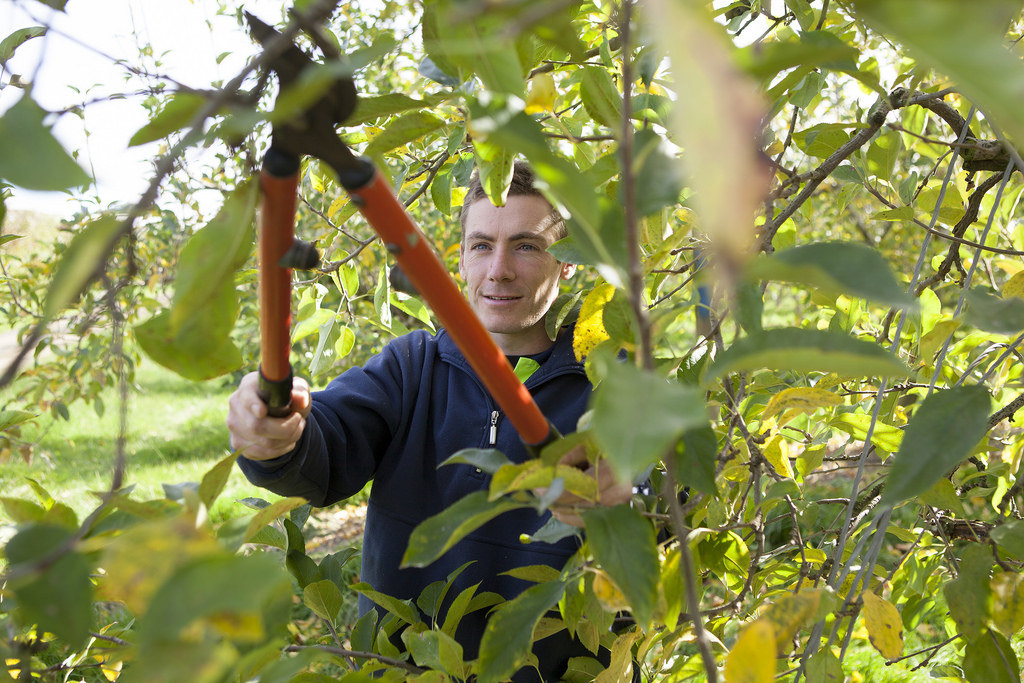Follow our Home Maintenance Tips for a Better Spring Season
With winter coming to an end and spring on the horizon, it’s important to start working on your home maintenance over the first few months of the new year. This usually involves fixing roof shingles from ice damage, clearing gutters, sealing damaged driveways, and growing new plants. As you go through your checklist, be sure to address any plumbing issues you may have noticed during the colder months. For instance, if you’ve experienced warm water coming out of cold tap, it’s a good time to get that checked and fixed. To help you get ready for spring, here are a few home maintenance tips:
1. Service the AC Unit
As the weather turns warmer, you should have a certified HVAC contractor clean out your AC unit and determine if any repairs need to be made. Cleaning out the ducts, vents, and coils can improve system efficiency and prevent the need for costly repairs down the road. You should also be actively changing the unit’s filters with each season change. Check out sites like https://rapidrepairs247.com/ to hire a professional.
2. Inspect Roof Shingles
You should inspect your roof shingles after winter to see if any fell off or are badly damaged by ice or snow. If your roof is outdated, you should consider replacing the roof before next winter. An asphalt roof’s average lifespan is 15-20 years. Also, shingles that are loose or cracked need to be replaced immediately. The last thing you want to have are broken or loose shingles as the last line of defense to protect your home from ice, sleet, snow, and rain. Visit sites like https://roofplusnj.com/roofing-services-in-manasquan-nj/ for additional guidance.
3. Clear the Gutters
After inspecting your roof, you should next look over your gutters and clear out any leaves and debris that have collected over the past few months. A blog on www.littlesolitaire.com talks about how you should also check for leaks and cracks that you will need to repair in time for the spring. This one of the most important home maintenance tips since your gutters divert water from damaging your home and foundation.
4. Inspect the Concrete
You should inspect concrete around your home for cracks or signs of movement after the cold winter months. Exterior slabs of concrete, except for the pool deck, should drain away from your home’s foundation. If you do notice cracks, you should fill them with silicone caulk or concrete crack filler. And if you can, you should power wash the concrete and seal it to better protect it for the remainder of the year.
5. Check Outdoor Faucets
It’s important that you check outdoor hose faucets for ice and snow damage from the winter. You can do this by turning the water on and putting a finger over the opening. If you can easily stop the flow of water, there’s likely a damaged pipe that needs to be replaced. At the same time, you should also check on your garden hose and determine if you need to replace it or not.
6. Check out your Power Tools
Before summer hits, make sure you inspect all of your lawn equipment. Ensure your lawn mower, hedge trimmers, and other gas or battery-powered appliances are functional and ready for heavy summer usage. You should also clean your tools and sharpen any blades. This will make your yard work much easier.
7. Consider Colorbond Gutter Installation
If your existing gutters are showing signs of wear or if you’re looking to upgrade, consider Colorbond gutter installation. These steel gutters are durable and low-maintenance and come in a range of colors that can complement your home’s exterior. Spring is a great time to undertake this project before the rainy season picks up.
8. Trim Overgrown Trees and Bushes
This is another one of our favorite home maintenance tips that is often overlooked but can make a big difference. Trim the branches of trees and shrubs to keep them away from your home. Be sure to start early before the plants start growing leaves so you can clearly see each branch. All branches should be between five and seven feet away from your home. This will keep excess moisture from collecting on your siding and roofing. It will also prevent squirrels and other pests from scurrying across your roof and nesting in your home.
9. Use Compacted Soil
You should surround your home’s foundation with compacted soil. The same should be done in low areas in your yard. Springtime rains can lead to backyard flooding. This, in turn, causes damage to the foundation and basement flooding. Additionally, when water pools in low areas, it becomes a breeding ground for insects and pests. You can avoid all this by filling these areas with compacted soil.
Spring is a popular time to buy and sell a home, and when doing so it is advised to hire a professional home inspector. Walton Inspection Services offers home inspection services to Horry and Georgetown Counties. Contact us to schedule your inspection

Comments are closed.